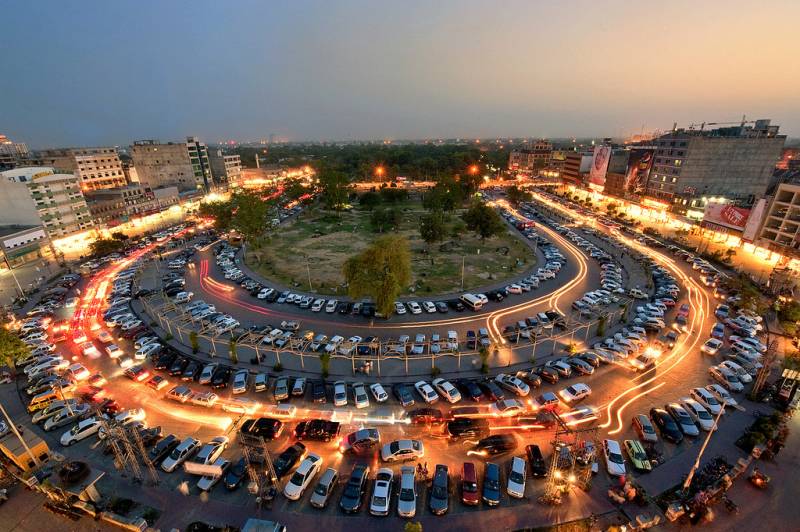Hell, I think, will be a vicious kind of city—all concrete and steel girders, perpetually being dug up and rebuilt and never, ever finished. People will live in grey, faceless high rise buildings in dark poky apartments and do some kind of drudge work and come home, all the time navigating the endless dust and chunks of torn-up road and hulking heavy machinery.
There’s a lot to be said for a city, particularly in the modern imagination. It’s probably because most of us live in an urban situation, and generally the modern imagination has moved away from the pastoral both imaginatively and literally. It’s all a bit too quaint to write about the fields and the flowers when you’re more likely to see flowers weedily growing between train tracks, or a field of garbage floating on a side-street naala. I even wrote an entire thesis on an imaginary city, and the way it exerts control and pressure on the imaginary people living inside it. We can no longer escape the city, and wherever we go we carry that experience inside us. There is a significant body of philosophy that examines our urban lives too, and new ideas of ghettoisation and what it means to be safe are fascinating, relevant and faintly disturbing.
The idea is that most of us live in groups that seek to create a sense of security by excluding other people. That is the basic premise of the ghetto: to keep some people in a space, and some people out. The direction of the exclusion varies—in sixteenth century Venice, the ghetto was created to keep Jews in. Modern ghettos tend to keep people out—think of DHA in Lahore, for example, or GOR. A gated residential area meant to be a safe environment, geared towards the needs and lifestyle of a certain kind of people. There are no challi-wallahs in DHA because they aren’t allowed inside the gates, so they park their donkey carts on the road outside. Evidently slightly grubby young men (challi ash makes for dirty hands) on carts pulled by lolloping donkeys don’t fit into the social milieu of the DHA.
The reason this is relevant to you and me is that it should explain better to us why we are so apathetic about the way our lives relate to the cities we live in. I am presently navigating my life in a city that looks a lot like the first paragraph of this column. I am saved by the fact that there are still places one can escape to where the light filters in green from one’s windows, and at maghrib time the gul-cheen sends arrows of scent flying after the birds that are making their night roost in neighbouring trees. My personal ghetto saves me from the destruction and noise and dust, but it also insulates me from having to be too affected by it. It provides respite, and once we retreat into our ghettos many of us never emerge. We physically do, but mentally are still back in our safe places, and no change ever happened from being in a safe place.
So that’s what we have to do, to save ourselves: is to emerge from the safe places and go out into our cities and be present. To see the discordantly cheerful turquoise paint on the cranes and wrecking balls, the Pakistani flag painted onto the tens of container-offices flanking the road, the white ends of the stumps that were once shady trees, glaring like bone at you. Is it patriotic to say shabash to the rubble and haze? Is it elitist to mourn the trees, the landscape of a city that didn’t need these roadworks? Let’s be honest—anybody living and working in Gulberg and its environs was perfectly well served by Main Boulevard as it was. We drive past the heaps of rock and wheeze through the clouds of suspended dust to fetch our children home from school every day and it only reminds me of how such few of us did anything, actively, to prevent this from happening. It’s not because we’re bad people who like the systematic obliteration of our city as we know it.
It’s because we don’t think about ourselves in relation to the space we occupy. We don’t see ourselves as belonging to the city beyond arguing its merits with Karachi-wallahs or feeling proud to say you’re Lahori to a Punjabi taxi driver abroad. If someone came and broke down the gate of your house and felled the trees in your garden, you’d be livid. You’d be dipping into your repertoire of rude words, you’d be punching people on the nose. Why should people coming to break down your city be treated any different? Isn’t this home too? Every time I have to go to Gulberg I’m mentally punching someone on the nose, but as Sheikh Saadi said, the blow that isn’t delivered at the right time should fall on you instead.
m.malikhussain@gmail.com






